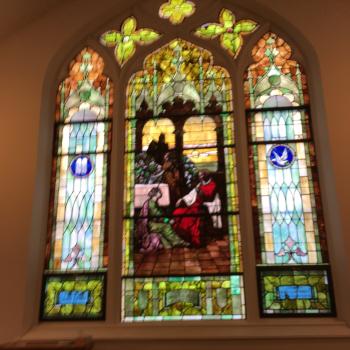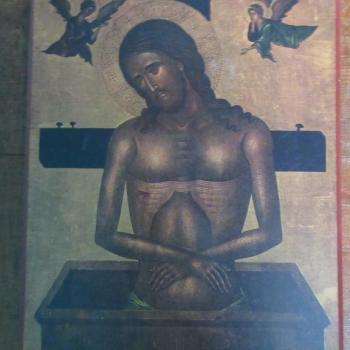Rocco Palmo notes a new pastoral letter written by Bishop Edward Slattery of Tulsa on the new anti-immigration legislation in his state, where the “basic intention is to deny those who have entered our country illegally the right to work in Oklahoma and the right to find shelter for their families..” Slattery stresses that the right to earn a living and shelter one’s family are basic human rights and criticizes the new law in the strongest terms when he notes that it would “create an atmosphere of repression and terror.” And the denial of basic rights is simply based on what kind of papers one can produced when approached by the agents of law:
“Regrettably, for many Oklahomans the rationale which justifies HB 1804 is simply the illegal status of those who have crossed into the country without proper documentation. All other arguments regarding the situation are simply dismissed by the over-riding fact that these hard workers, these good neighbors, these families who are so eager to contribute to the well-being of our society, have entered the country illegally and are de-facto criminals.”
This law, Slattery claims, would have the effect of “marginalizing whole segments of the population, breaking up families, punishing children for the crime of their parents, and criminalizing various expressions of concern and charity.” What seems especially chilling is the effect this is having on the sacraments. Slattery describes a horror story as follows:
“On Saturday, November 17th, the sanctity of Saint Francis Xavier Church in Sallisaw was violated by three policemen who knew that Hispanic Catholics trust the Church and come to Mass, even when they would not otherwise venture out of their homes for fear of deportation. That makes a Catholic church an easy place to ‘round up’ illegals, so arriving before the 5:30 o’clock Spanish Mass, they began to ask the members of the faithful for their papers as they came to offer Christ’s sacrifice. Such intolerable excesses may force the Church to go underground…”
This is truly horrendous, and raises the specter of the old penal laws, and the newer situation of the church in China. Will this wave of fear-induced paranoia that arose after the terrorist incidents in 2001 never abate? And how should Catholics resist such evil laws that threaten the ability of the Church to function? What kind of civil disobedience would be called for to protect Church-goers from such intimidation? Unless the climate changes and sanity is restored, these questions will not go away any time soon.











